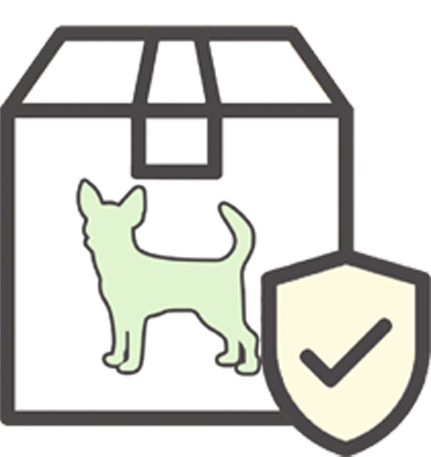What’s Your Dog's Poop Telling You?
Updated On: Monday, August 1, 2022 16:05:11 PM America/Los_Angeles
“Cow patty, soft serve, or rabbit poop?” If you’ve contacted the vet regarding your dog’s bowel movements, you might’ve been asked this question before. But what exactly do your dog’s bowel movements say about your pup’s health? Though most of the time we use various euphemisms to refer to consistency, color can tell us something important about your dog’s health as well. Below are some clues as to what might be going on with your fur baby. As always, contact your vet if you sense your dog’s health is in danger.
Photo by Ludovic Migneault
Shape and Consistency
- Liquid (aka diarrhea): Diarrhea can have a wide range of causes. The causes range from critical issues such as an infection to environmental stressors such as a move.
- Cow patty (mushy and unshaped): Cow patty poops can be the result of a food intolerance or a leaky gut.
- Soft serve (shaped but still leaves residue when picked up): Soft serve can be caused by a change in diet or an internal parasite.
- Firm (smooth and solid): A healthy bowel movement should produce a pliable but solid poop that stays together when picked up.
- Rabbit poop (hard pebble-like appearance): Rabbit poops could mean your pup isn’t getting enough water. This type of bowel movement can be exacerbated by stress or a lack of exercise.
Color
- Brown: Healthy bowel movements should be chocolate brown in color.
- Green: Don’t be alarmed by green poop--your dog may simply be eating too much grass. Check for grass blades to confirm.
- Yellow: Yellow poop might indicate the presence of gastroesophageal reflux disease (GERD) or liver failure.
- Red: Red stool can be the result of bleeding in the lower GI tract, hemorrhoids, or eating red food. Bright red can be from hemorrhoids, while a gooey film with red can signal bleeding in the GI tract.
- Black/tarry: Black or tarry bowel movements could indicate bleeding in the upper GI tract or the result of taking iron supplements.
If your pup is having issues with their bowel movements, a pee pad can be a helpful tool. While occasional diarrhea is nothing to fret about, regular potty troubles will have to be monitored closely. An indoor pet potty can help you keep a close eye on your dog’s bowel movements. After your dog has taken care of business on a wee wee pad, examine the poop to try and determine what the cause might be or to make sure they are improving. And again, if you’re unsure about the cause and the issue persists, contacting your vet is always your best bet!



